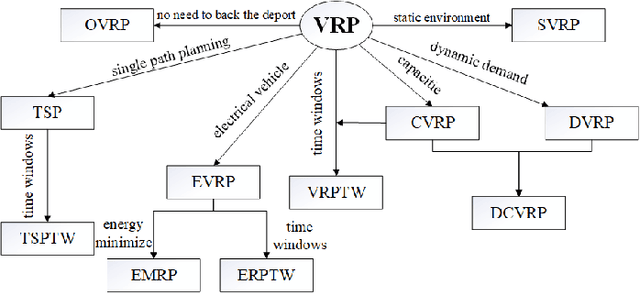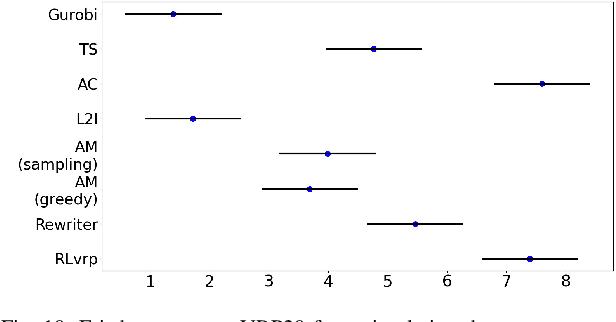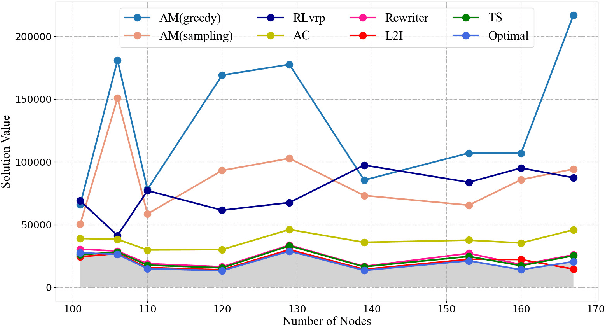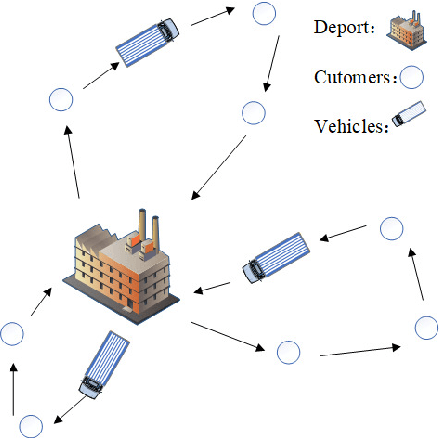Bingjie Li
Enhanced High-Dimensional Data Visualization through Adaptive Multi-Scale Manifold Embedding
Mar 19, 2025Abstract:To address the dual challenges of the curse of dimensionality and the difficulty in separating intra-cluster and inter-cluster structures in high-dimensional manifold embedding, we proposes an Adaptive Multi-Scale Manifold Embedding (AMSME) algorithm. By introducing ordinal distance to replace traditional Euclidean distances, we theoretically demonstrate that ordinal distance overcomes the constraints of the curse of dimensionality in high-dimensional spaces, effectively distinguishing heterogeneous samples. We design an adaptive neighborhood adjustment method to construct similarity graphs that simultaneously balance intra-cluster compactness and inter-cluster separability. Furthermore, we develop a two-stage embedding framework: the first stage achieves preliminary cluster separation while preserving connectivity between structurally similar clusters via the similarity graph, and the second stage enhances inter-cluster separation through a label-driven distance reweighting. Experimental results demonstrate that AMSME significantly preserves intra-cluster topological structures and improves inter-cluster separation on real-world datasets. Additionally, leveraging its multi-resolution analysis capability, AMSME discovers novel neuronal subtypes in the mouse lumbar dorsal root ganglion scRNA-seq dataset, with marker gene analysis revealing their distinct biological roles.
ACQ: A Unified Framework for Automated Programmatic Creativity in Online Advertising
Dec 09, 2024Abstract:In online advertising, the demand-side platform (a.k.a. DSP) enables advertisers to create different ad creatives for real-time bidding. Intuitively, advertisers tend to create more ad creatives for a single photo to increase the probability of participating in bidding, further enhancing their ad cost. From the perspective of DSP, the following are two overlooked issues. On the one hand, the number of ad creatives cannot grow indefinitely. On the other hand, the marginal effects of ad cost diminish as the number of ad creatives increases. To this end, this paper proposes a two-stage framework named Automated Creatives Quota (ACQ) to achieve the automatic creation and deactivation of ad creatives. ACQ dynamically allocates the creative quota across multiple advertisers to maximize the revenue of the ad platform. ACQ comprises two components: a prediction module to estimate the cost of a photo under different numbers of ad creatives, and an allocation module to decide the quota for photos considering their estimated costs in the prediction module. Specifically, in the prediction module, we develop a multi-task learning model based on an unbalanced binary tree to effectively mitigate the target variable imbalance problem. In the allocation module, we formulate the quota allocation problem as a multiple-choice knapsack problem (MCKP) and develop an efficient solver to solve such large-scale problems involving tens of millions of ads. We performed extensive offline and online experiments to validate the superiority of our proposed framework, which increased cost by 9.34%.
An Overview and Experimental Study of Learning-based Optimization Algorithms for Vehicle Routing Problem
Jul 15, 2021



Abstract:Vehicle routing problem (VRP) is a typical discrete combinatorial optimization problem, and many models and algorithms have been proposed to solve VRP and variants. Although existing approaches has contributed a lot to the development of this field, these approaches either are limited in problem size or need manual intervening in choosing parameters. To tackle these difficulties, many studies consider learning-based optimization algorithms to solve VRP. This paper reviews recent advances in this field and divides relevant approaches into end-to-end approaches and step-by-step approaches. We design three part experiments to justly evaluate performance of four representative learning-based optimization algorithms and conclude that combining heuristic search can effectively improve learning ability and sampled efficiency of LBO models. Finally we point out that research trend of LBO algorithms is to solve large-scale and multiple constraints problems from real world.
 Add to Chrome
Add to Chrome Add to Firefox
Add to Firefox Add to Edge
Add to Edge